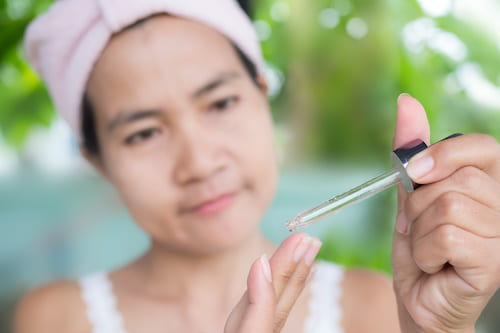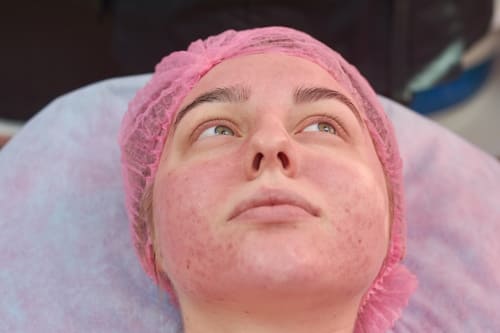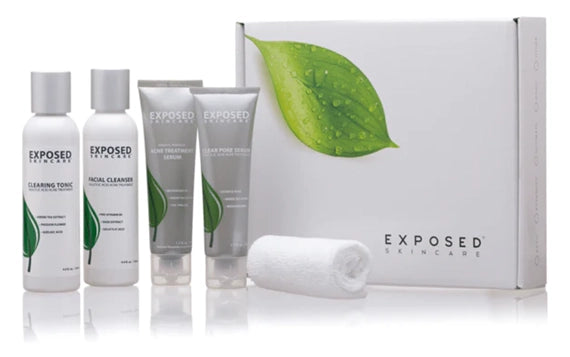Most people will experience acne or pimples at some point in their lives. However, there’s often a layer of complexity and misunderstanding when it comes to active acne.
We're here to break down what active acne is, what causes it, and the treatments that can help manage it. Let's journey through the layers of your skin to understand better this condition that affects so many.
Also read: How to choose the best acne treatment
Biggest Take-Aways:
- Active acne is a common yet complex skin condition that requires a multi-faceted approach for effective management.
- Not all acne products are created equal. Understanding the active ingredients and how often to use them can help tailor a more effective treatment regimen.
- Prevention is just as important as treatment in managing acne. Balanced skin care practices, including the appropriate use of medications and protective measures, are key to long-term skin health.
- Exposed Skin Care offers a harmonious blend of scientific and natural ingredients in its products, providing a comprehensive solution for treating and preventing acne.

What Is Active Acne?
Active acne is a subset of the broad term "acne," focusing on the inflammatory or growing stages of acne vulgaris. It's not just the occasional pimple but rather an ongoing battle against various skin issues, such as blackheads, whiteheads, and even cysts.
Why Is It Called "Active"?
The term "active" signifies that this form of acne is currently developing or worsening, as opposed to acne scars or discolorations that are remnants of past breakouts.
The Causes of Active Acne
Understanding the causes of active acne is the first step toward targeted treatment and prevention. Here are some factors to consider.
- Hormonal Fluctuations: Hormones can play a significant role in the onset of active acne, especially during puberty, menstrual cycles, and menopause.
- Excess Oil Production: When your sebaceous glands produce too much oil, it can clog pores and lead to active acne.
- Dead Skin Cells: A buildup of dead skin cells can also clog pores, creating a breeding ground for acne.
- Lifestyle Choices: Smoking, diet, and stress can also contribute to active acne.

Types of Active Acne
Various types of acne fall under the active acne umbrella.
- Blackheads and Whiteheads: These are the most common and are caused by clogged pores.
- Papules and Pustules: These are more severe forms of acne characterized by inflammation.
- Cysts and Nodules: These represent the most severe forms of active acne and may require more intense treatment options.
- Moderate to Severe Acne: This term encompasses various acne types requiring more comprehensive treatment approaches than over-the-counter solutions.
Active Acne Treatment: What Are Your Options?
When treating active acne, the options are vast, but picking what's right for you is important.
Over-The-Counter Treatments
- Benzoyl Peroxide: This is one of the most commonly used active ingredients for treating mild to moderate acne.
- Salicylic Acid: This helps remove excess oil and dead skin cells but may not be suitable for everyone.
- Azelaic Acid: This ingredient is found in many acne products and can help prevent new breakouts.
- Glycolic Acid: This alpha hydroxy acid helps exfoliate the skin and is usually recommended for mild acne.

Prescription Treatments
- Retinoids: These are derived from Vitamin A and are usually prescribed for moderate to severe acne.
- Antibiotics: These can be effective but must be used cautiously to prevent resistance.
- Laser Treatments: Laser acne treatment is often used for moderate to severe acne to reduce inflammation and promote the growth of new skin.
- Chemical Peels: These use strong acids to remove the top layer of skin, helping to unclog pores and reduce the appearance of acne.
Side Effects and What to Watch For
Acne treatments, like other medications, can have possible side effects. Here are some to look out for:
- Redness and Irritation: Common, especially when starting a new acne treatment.
- Skin Discoloration: Particularly in skin of color, some treatments can lead to discoloration and minor skin irritation.
- Dryness: Many treatments can dry out the skin, so balancing acne with hydration is crucial.
- Allergic Reactions: Always do a patch test to avoid the risk of severe allergic reactions.

Prevention: Tips to Keep Active Acne at Bay
Preventing active acne is just as important as treating existing breakouts.
- Wash Your Face Twice a Day: But don’t overdo it. Too much washing and scrubbing can worsen acne.
- Use Non-Comedogenic Products: Look for products labeled water-based or noncomedogenic as they are less likely to clog pores.
- Avoid Stress: While easier said than done, high-stress levels can worsen acne.
- Healthy Diet: Diets high in sugar and dairy have been linked to acne, so it may help to monitor your food intake.
Benefits of Exposed Skin Care for Active Acne Management
Managing active acne may seem like an uphill battle. Luckily, Exposed Skin Care offers a tailored solution to tackle common skin conditions like acne vulgaris.
Here’s what you need to know about these products:
- Balanced Ingredients: Exposed Skin Care harmoniously combines proven acne-fighting components like benzoyl peroxide and salicylic acid with natural extracts. This balance offers effective treatment without stripping the skin of essential oils.
- Nonprescription Ease: With Exposed Skin Care, you don't have to go through the hassle of obtaining prescription medications, making it a convenient over-the-counter acne option.
- Removes Dead Skin Cells: One key step to treating acne is removing dead skin. Exposed products excel in this, paving the way for a healthier skin surface.
- Suitable for Various Skin Tones: The products are designed to work across various skin tones, minimizing the risk of skin discoloration and minor skin irritation.
- Prevents Future Flares: Not only do these products treat active acne, but they also help prevent future breakouts. This is crucial for the long-term management of acne vulgaris.
Exposed Skin Care offers an array of products best suited for acne-prone skin. From cleansing to treatment, each step is designed to improve your skin, providing a holistic approach to managing this common skin condition.
Conclusion
Active acne is a challenging skin condition that many people grapple with. A common mistake is reaching for the first acne treatment on the shelf without considering the unique needs of one's skin. Understanding which ingredients to look for and how they interact with your skin is essential in formulating an effective treatment strategy.
Products like Exposed Skin Care offer a comprehensive approach that aims to minimize side effects and enhance the skin's overall appearance. It's not just about treating the acne you currently have; it's also vital to protect your skin from the negative impacts that can follow, such as acne scarring.
The ongoing use of suitable acne medications can be very effective in ensuring that once your acne has cleared, it stays that way. Ingredients such as glycolic acid, benzoyl peroxide, and adapalene have proven effective in acne treatment.
However, balancing their application is crucial to avoid potential skin irritation. Applying a balanced regimen of products twice a day can offer an effective approach to clearing acne without harming the skin. Exposed Skin Care offers various products to protect your acne-prone skin from contact with irritants.
Acne treatment is often a trial-and-error process to find the most effective strategy and products that suit your needs. Staying informed, practicing consistent skincare, and adopting a balanced, nonoily approach can significantly contribute to effectively managing this common but complex skin condition.
FAQs
What is active acne?
Active acne is an ongoing skin condition characterized by breakouts, including pimples, blackheads, and whiteheads. It is a form of acne vulgaris.
What are some common ingredients to look for in acne treatments?
Common active ingredients in over-the-counter acne treatments include benzoyl peroxide, salicylic acid, and glycolic acid.
How often should I apply acne products?
You should use acne products twice daily—once in the morning and once at night. However, this may vary based on product instructions and skin sensitivity.
What are some preventive measures for acne?
Keeping your skin clean, moisturized and avoiding irritants can help prevent new breakouts. Noncomedogenic products are recommended for acne-prone skin.
What role does Exposed Skin Care play in treating active acne?
Exposed Skin Care offers a comprehensive range of acne treatment and prevention products. The products combine scientific and natural ingredients for effective and balanced skin care.
















